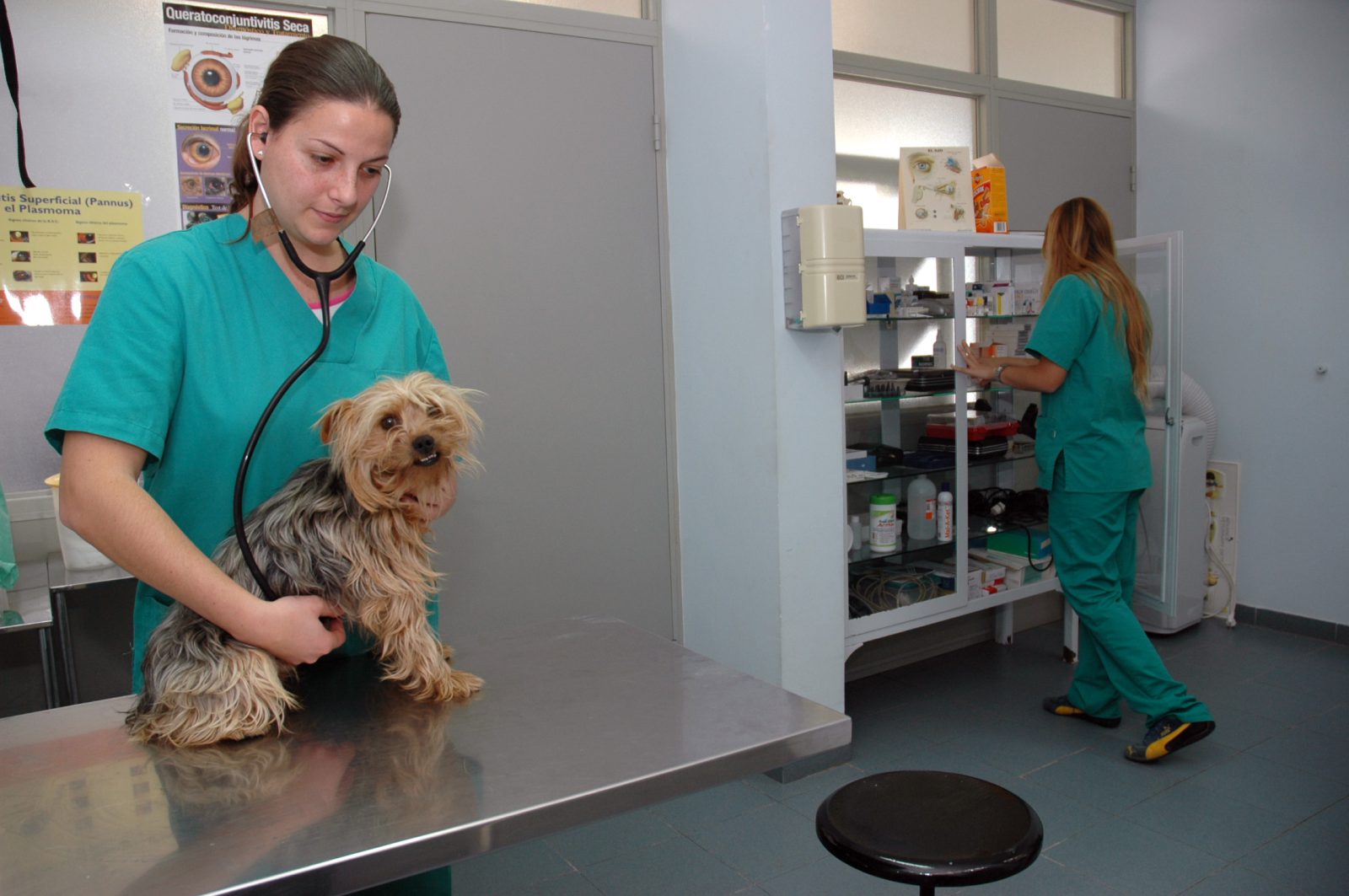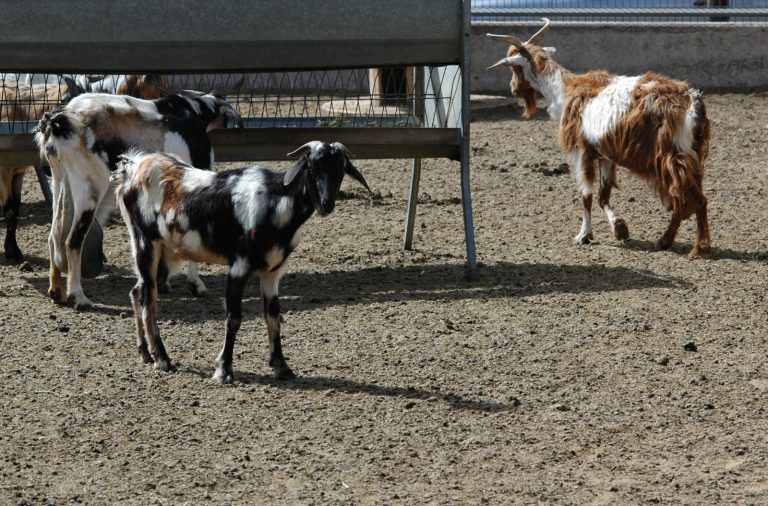Clinical Internships and Clinical Rotations
The development of professional activities associated with the practice of Veterinary Medicine requires the performance of certainly complex skills, which the student begins to acquire through theoretical training but does not reach an acceptable degree except through the exercise of professional practice. Clinical internships greatly facilitate students' completion of their training so that they are in a position to begin their professional career with certain prospects for success in it.
This internship block completes the practical and clinical training of the degree. The subjects are taught in the fifth year since the student is required to have taken all the basic and fundamental subjects, as well as most of the clinical subjects for better use. These contents are integrated as subjects in the “Guided Practices and Final Degree Project” block of the Bachelor's Degree in Veterinary Medicine by the ULPGC and are specified in the following subjects:
- First semester. Compulsory subject
- 42540 – Clinical Practices (6 ECTS).
- Second semester. Optative subjects (choose one)
It is intended that students develop, in person and under the direct supervision of clinical professors, the clinical practical skills of the profession.
With these practices developed within the walls of the Faculty, and more specifically, in the Veterinary Clinical Hospital, in the Pathological Anatomy Diagnostic Service and in the Infectious Diseases Diagnostic Service, the aim is to offer sufficient “HANDS-ON” clinical experience that guarantees the acquisition of the day one skills established by EAEVE and which will be subsequently reviewed in the Final Degree Project.
Specifically, it is structured as follows:
Both in the subject “Clinical Practices” and in both “Rotatories” the student must carry out practices in each of the following Blocks:
- A.- ANIMAL MEDICINE AND SURGERY BLOCK (75 hours)
- The student will go to the different clinical services of the Veterinary Clinical Hospital to complete rotations for all services. The programming of these practices has been carried out in Academic, therefore the student must choose a group of practices in said application for the assignment of rotary dates. .
- B.- PATHOLOGICAL ANATOMY BLOCK (17 hours)
- The student will go to carry out practices in the Pathological Anatomy Diagnostic Service. The programming of these practices has been carried out in Academic, therefore the student must choose a group of practices in said application for the assignment of rotating dates.
- C.- ANIMAL HEALTH BLOCK (8 hours)
- The student will go to do internships at the Animal Health Diagnostic Service. The scheduling of these internships has been done in Academic, therefore the student must choose an internship group in said application for the assignment of rotating dates.
External Practices and Outpatient Clinic
The External Practices subject of the Bachelor's Degree in Veterinary Medicine by the ULPGC has been structured into two compulsory subjects that are taught in the fifth year.
- 42543 – External Practices and Mobile Clinic I (6 ECTS)
- 42544 – External Practices and Mobile Clinic II (6 ECTS)
As stated in the degree verification report, external internships will consist of stays in Veterinary Establishments (Office Clinics, Clinics or Hospitals), Slaughterhouses, Livestock Farms, Companies and External Organizations in the veterinary or related field.
In order for the training of our graduates to be as complete as possible and to guarantee professional skills in the different fields of the profession, our students must complete the following blocks:
A.- HCV WALKING CLINIC BLOCK (60 hours, be careful! both semesters!). MANDATORY!.
The student will go to do internships in the Outpatient Clinic Services of the Veterinary Clinical Hospital. To do this you must choose an internship group in Academic. The scheduled departures are:
- visit to Broilers poultry farm
- visit to Laying birds farm + Incubation
- visits to pig farms
- visits to goat and/or sheep farms
- visits to cattle farms
- visit to Cunícola farm.
They must keep in mind that these internships take place throughout the year, but the student must choose which subject they want to be evaluated in (I or II), regardless of the semester in which they did the internship. It must be the subject different from the one chosen for block D.
B.- HCV EMERGENCY BLOCK (80 hours, be careful!, both semesters). MANDATORY!.
The student attends the HCV during Emergency hours. To choose an appointment, use the Academic application.
- B1. EXTERNAL INTERNSHIP AND MOBILE CLINIC I (FIRST SEMESTER)
- weekend night guard (Fri, Sat or Sun) from 9:00 p.m. to 9:00 a.m.
- night shifts during the week (to choose from Monday to Thursday) from 9:00 p.m. to 9:00 a.m. in the first semester.
- Weekend morning shift (Saturday or Sunday) from 9:00 a.m. to 3:00 p.m.
- Weekend afternoon shift (Saturday or Sunday) from 3:00 p.m. to 9:00 p.m.
- B2. EXTERNAL INTERNSHIP AND MOBILE CLINIC II (SECOND SEMESTER)
- weekend night guard (Fri, Sat or Sun) from 9:00 p.m. to 9:00 a.m.
- night shifts during the week (to choose from Monday to Thursday) from 9:00 p.m. to 9:00 a.m. in the second semester.
- Weekend morning shift (Saturday or Sunday) from 9:00 a.m. to 3:00 p.m.
- Weekend afternoon shift (Saturday or Sunday) from 3:00 p.m. to 9:00 p.m.
- The student must have the attendance sheet for these shifts signed in the portfolio (see last page) and the objectives signed.
C.- SLAUGHTERHOUSE BLOCK (20 hours, second semester only). MANDATORY!.
He The student will attend internships at the Matadero Insular de Gran Canaria in the mornings for 1 full week. This block of practices must be carried out in the second semester. Be careful, you must choose a group in Academic.
D.- COMPANIES BLOCK OPTIONAL, choose D1 or D2!.
- D1.- PRIVATE VETERINARY CLINIC BLOCK (80 hours)
- The student can attend internships with any registered veterinarian in the Canary Islands who practices in any small animal clinic throughout the Canary Islands.
- D2.- FOOD SECTOR BLOCK (80 hours)
- The student can attend internships in companies in the food sector.
The student must complete the training program through the use of the PORTFOLIO. This document compiles the learning objectives and the evaluation of the skills on day one of the degree.



